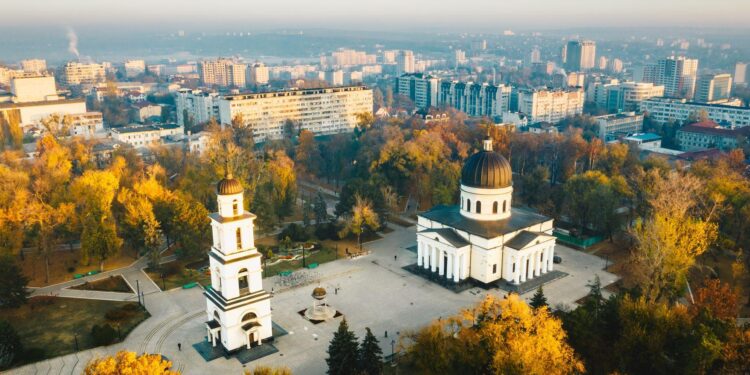Moldova’s Diplomatic Realignment: The Expulsion of Russian Diplomats Marks a New Chapter
In a significant diplomatic maneuver, Moldova has expelled several Russian diplomats amid allegations that they aided a Moldovan parliamentarian currently evading justice on corruption charges. This action underscores the growing tensions between Chisinau and Moscow, particularly in the context of recent political upheaval and increasing national concerns about foreign interference. While the identities of the expelled diplomats remain undisclosed,their purported involvement in facilitating the escape of the fugitive legislator raises alarms about Russia’s influence in Moldova and highlights the country’s commitment to combating corruption. This development represents a bold step by Moldova as it navigates complex geopolitical challenges while seeking closer ties with western nations.
Escalation of Diplomatic Tensions Following Expulsion of Russian diplomats
The recent expulsion signifies a marked escalation in diplomatic relations between Moldova and Russia. This decision follows heightened scrutiny from Chisinau regarding Russian influence within its borders‚ÄĒa trend exacerbated by regional instability linked to ongoing conflicts in ukraine. Among those expelled are key figures from the Russian Embassy in Chi»ôinńÉu,prompting strong condemnations from Moscow officials who characterize these actions as unfounded provocations.
The fallout from this diplomatic rift extends beyond mere statements, significantly affecting both nations involved. Analysts interpret Moldova’s actions as indicative of a decisive shift towards pro-European policies, reinforcing its aspirations for deeper integration with the european Union (EU). The strained relations can be encapsulated through several critical points:
- Enhanced Security Protocols: Moldova is strengthening its borders and enhancing cooperation with European allies.
- Political Consequences: opposition parties within Moldova are expressing discontent over how foreign relations are being handled by current leadership.
- Moscow’s Response: Russia has threatened retaliatory measures, complicating future discussions between both nations.
Regional Security Consequences and Transformation of Moldova’s Foreign Policy
The expulsion carries significant implications for regional stability as well as for shaping Moldova‚Äôs foreign policy direction. by firmly opposing external interference‚ÄĒespecially from Moscow‚ÄĒMoldova reaffirms its commitment to sovereignty and independence.This position not only aligns with EU standards but also reflects a broader trend among Eastern European countries prioritizing national security against external threats. Such decisions signify an affirmation of democratic values while rejecting historical patterns characterized by political meddling from Russia.
Looking forward, it truly seems Moldova is poised to adopt a more assertive foreign policy characterized by:
- Tighter Alliances with Western Nations: An increased emphasis on strengthening relationships with NATO and EU member states will likely secure support for defense initiatives.
- Improved defense Capabilities: Investments aimed at enhancing defense infrastructure along with intelligence-sharing agreements may bolster Moldova’s ability to counter emerging threats effectively.
- Civic Engagement on Foreign Policy Matters: The government may prioritize clarity alongside public involvement concerning security agreements and international partnerships.
This strategic pivot will be crucial as Moldova navigates through intricate geopolitical dynamics while balancing relationships between Western allies and neighboring Eastern countries. A summary table outlining recent diplomatic developments alongside their anticipated impacts provides clarity on current trends affecting Moldovan foreign relations:
| Diplomatic Action | Potential Impact |
|---|---|
| Diplomat Expulsions | A stronger assertion of sovereignty; rejection of outside influence |
Addressing Political Corruption: strategies for Strengthening Governance in Moldova
The recent expulsion serves as an urgent call for extensive reforms aimed at tackling political corruption within Romania.To improve governance structures and restore public confidence,Moldova should implement a multi-faceted strategy targeting systemic weaknesses.
Pursuing Judicial Independence: This must include safeguarding courts against political pressures and increasing accountability among judges.Furthermore,strengthening anti-corruption agencieswith adequate resources will empower them to investigate misconduct without fear.
.
Additonally,Moldova could greatly benefit from fostering transparency culture.Public engagement can be enhanced throughsupporting civil society organizationsthat monitor governmental activities
.implementing e-governance tools will streamline services while improving oversight,reducing opportunities for bribery.To illustrate potential steps toward these goals,the following table summarizes key recommendations:
.
| Advice | Action Steps | |
|---|---|---|
| Judicial reforms | Ensure independence & accountability via new legislation | |
| Empower Anti-corruption Bodies | Increase funding & operational authority | |
| Promote civic Engagement | Support NGOs & public watchdogs | |
| E-Governance Adoption | Implement digital tools enhancing service delivery |
















